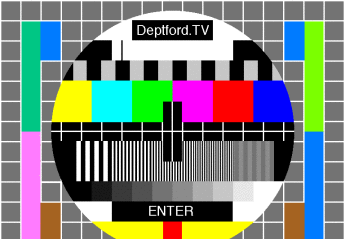To compensate for the real life events that we are all missing so much, the VideoVortex community gathers during a hybrid event that happens both online and in the courtyard of John Cabot University in Rome. Organized and hosted by Donatella Della Ratta and Albert Figurt (in Rome) and Andreas Treske and Geert Lovink (online), we will switch between a conversation robot, Zoom, a drone and the obligatory online video screening in an experimental setup that will try to beat the overall online fatigue. Remember Malta, let’s bring on new VideoVortex gatherings! In the meanwhile, let’s preserve the spirit, see you all thereWhat is online video today, fifteen years into its exponential growth? What started with amateur work of YouTube prosumers has spread to virtually all communication apps: an explosion in the culture of mobile sound and vision. Now, in the age of the smart phone, video accompanies, informs, moves, and distracts us. Are you addicted yet? Look into that tiny camera, talk, move the phone, show us around — prove to others that you exist! Founded in 2007 by the Amsterdam Institute of Network Cultures, Video Vortex is a lively network of artists, activists, coders, curators, critics, and researchers that deals with all the facets of both politics and aesthetics of online video.
research
Calculating Control Symposium (11)
The location and architecture of Haus der Statistik demonstrates the two-sided nature of the science of cybernetics: On the one hand, the potential of a new organizational model, and on the other, the risks associated with its use as a powerful instrument for surveillance and control. These ambivalent uses of cybernetics are explored in examples from the socialist political regimes of the past as well as the capitalist network society of today. A second focus of the symposium is the consideration of netart and its aesthetic expressions that reflect the cybernetic conditions of the internet, while also being dependent on them.
Video Vortex XII proceedings: art, archive, algorithms, activism
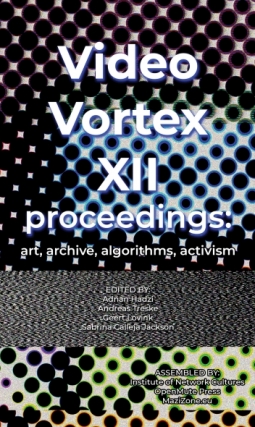
Video Vortex, an artistic network concerned with the aesthetics and politics of online video, gathered again in Malta for a two-day conference. We were in particularly focussing on bringing new research, theory and critiques of online video– in addition to questions around its integration with social media – to Malta. These proceedings are an edited collection of assembled and annotated video essays living in two instantiations: an online version – located on the web at https://vv12.org, and an offline version – stored on a server inside a VHS case.
The Wandering Tower – Mahala Festival
The Mahalla Festival 2020 was scheduled to take place in Arbil, Iraq, with screenings, performances, talks, round tables and concerts. The festival wanted to bring together artists, academics, institutions and stakeholders from different fields and different backgrounds to support an intercultural understanding in times of increased mobility and search for identity.Under the critical circumstances and in the light of the objectives of the destabilization in Iraq we had to cancel the Mahalla festival in January 2020. The new escalation of violence in Iraq and Syria is more than a slap in the face of its citizen.We were planning to shift the Mahalla Festival 2020 to Cyprus. But then in February not online China but the whole world was confronted with the COVID-19 pandemic which changed the way we communicate and keep our creative narration alive for the time being.We are now globally faced with the measures that are necessary to control the pandemic and staying in self isolation to slow the spread of the pandemic. Following the global lockdown all cultural and community events and any kind of mobility are suspended and the economy stands still. Many cultural actors and creative initiatives try to survive not only artistically but also existentially. Under these circumstances the Mahalla Festival 2020 will take place as a remote festival to overcome self-isolation, demobilization and paralysis.
On December 26 & 27, 2020, the Unfinished Art Space based in Malta is organizing a 2-days exhibition entitled “Us”- Clubbing Report, with photos from artist Charlene Galea.

Curated by Margerita Pulè – who has participated in the Mahalla Festival 2018 with the installation, The Cement Bakery at the Palazzo in Zabbar –, the exhibition “Us” brings us close to moments and situations that are made possible by clubs and their atmospheres, the people constituting them and the soundtracks invading our ears.
In a time when clubs all over Europe are closed, artist and photographer Charlene Galea presents the exhilaration, intimacy and beauty of the clubbing scene through 35mm photographs dating from 2012 to 2020 and covering clubbing scenes in Barcelona, Berlin, France, Ibiza, London, Malta, Morocco, the Netherlands, Romania, and Tunisia.
In the 2-day exhibition, the physical and emotional intensity created, transcending generational and social constructs will be documented closely and truthfully, and hopefully make us travel in our memories of warm clubbing nights…
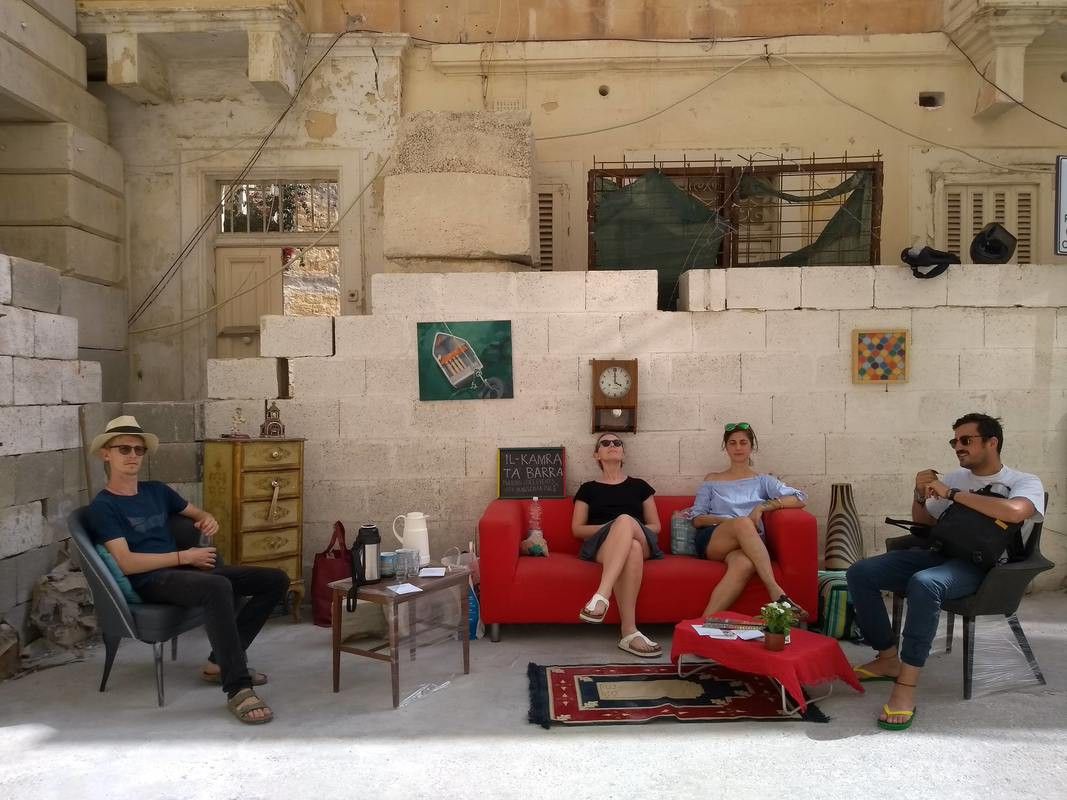
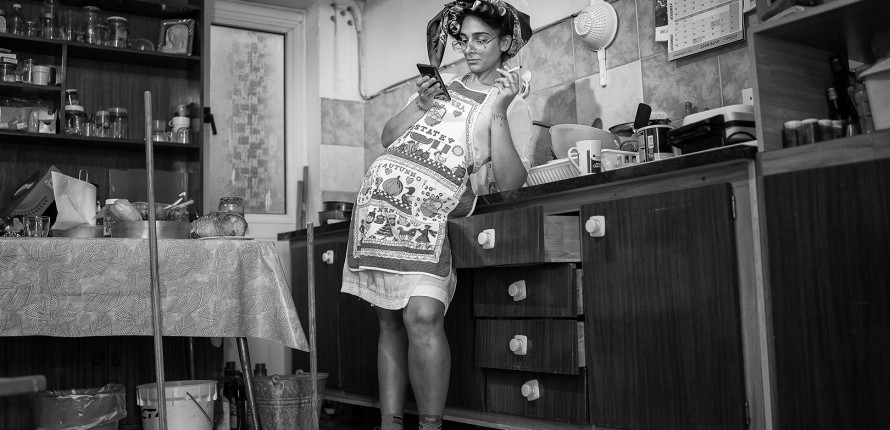
Excerpt from the Mahalla Festival News post: No later than one week ago I was standing in the queue of the KitKatClub in Berlin, not waiting for my turn to enter the dancefloor but standing in line like the others to get a quick-corona-test.
While jumping from one foot to the other, trying to get rid of the cold, I was reading the signs of the Clubcommission Berlin, calling for an equal treatment of the clubbing scene within the cultural area, especially in times of COVID-19. It almost sounded like a manifesto and made me think of these empty spaces and their significance in today’s world.
But Berlin is not the only place where club culture is defended and questioned. Currently active in her hometown in Malta, photographer and performance artist Charlene Galea has been taking photos of the clubbing phenomenon since 2012 and is reminding us of the multitude of experiences one is usually able to live in such a place.
Under the title “Us” Clubbing Report, she will exhibit a selection of these photos on December 26 & 27 in cooperation with the Unfinished Art Space, pointing out how important clubs are for people as spaces of freedom, of movement, of fluid identities…
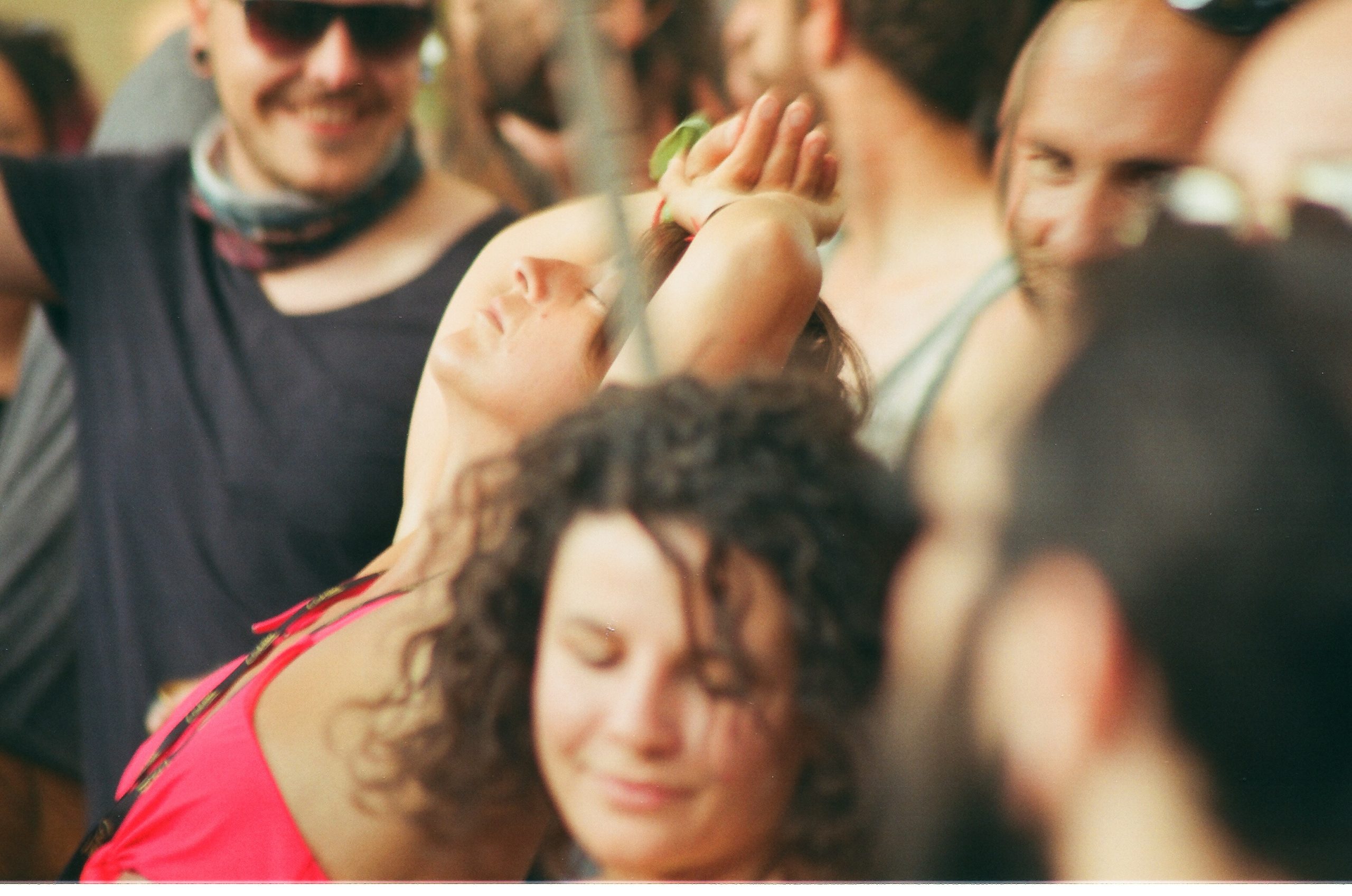
Charlene Galea is a Maltese artist who likes to stand on both sides of the camera. As an observer, particularly in numerous clubs around Europe where she first started to watch human bodies in action, and as a performer, an artistic approach she works with to guide people through concepts, using Instagram “stories” as a medium.
During her time at the London College of Fashion she started taking photos while going to clubs asking herself “Why are they here? What are they doing? Why is this occasion so special?”, while confessing that her favourite spot in clubs is the cloakroom area, a space of transformation where bodies rid themselves of their outer layers before getting on “stage”, a term we both agree upon – clubs are stages of freedom.
This diversified and international “field study” and the three-day takeover of a hotel in Malta this summer – which lead to strong blame from the government regarding COVID-19 outbreak on the island – were the triggers for this exhibition. Never having wanted to publish these images before, in fear of disappearing in the monotony of posts and pictures of weekend parties, “now is the right time”, she says, as clubs have closed again around the world.
Nevertheless, for Charlene Galea this moment of pausing and shutting down is having a positive impact as an anti-capitalistic act, making us aware of the former over-consumption of clubbing experiences. She is aware of what she calls a “loop”, arising when going out to a club: first dressing up, meeting up with friends, getting a drink beforehand etc. A loop that is affecting our club experience. “The hugs could be longer, one could start a conversation with someone who maybe really needs to talk”. We now have some time to think of the value of those spaces in our life and how we want to use them in the future.
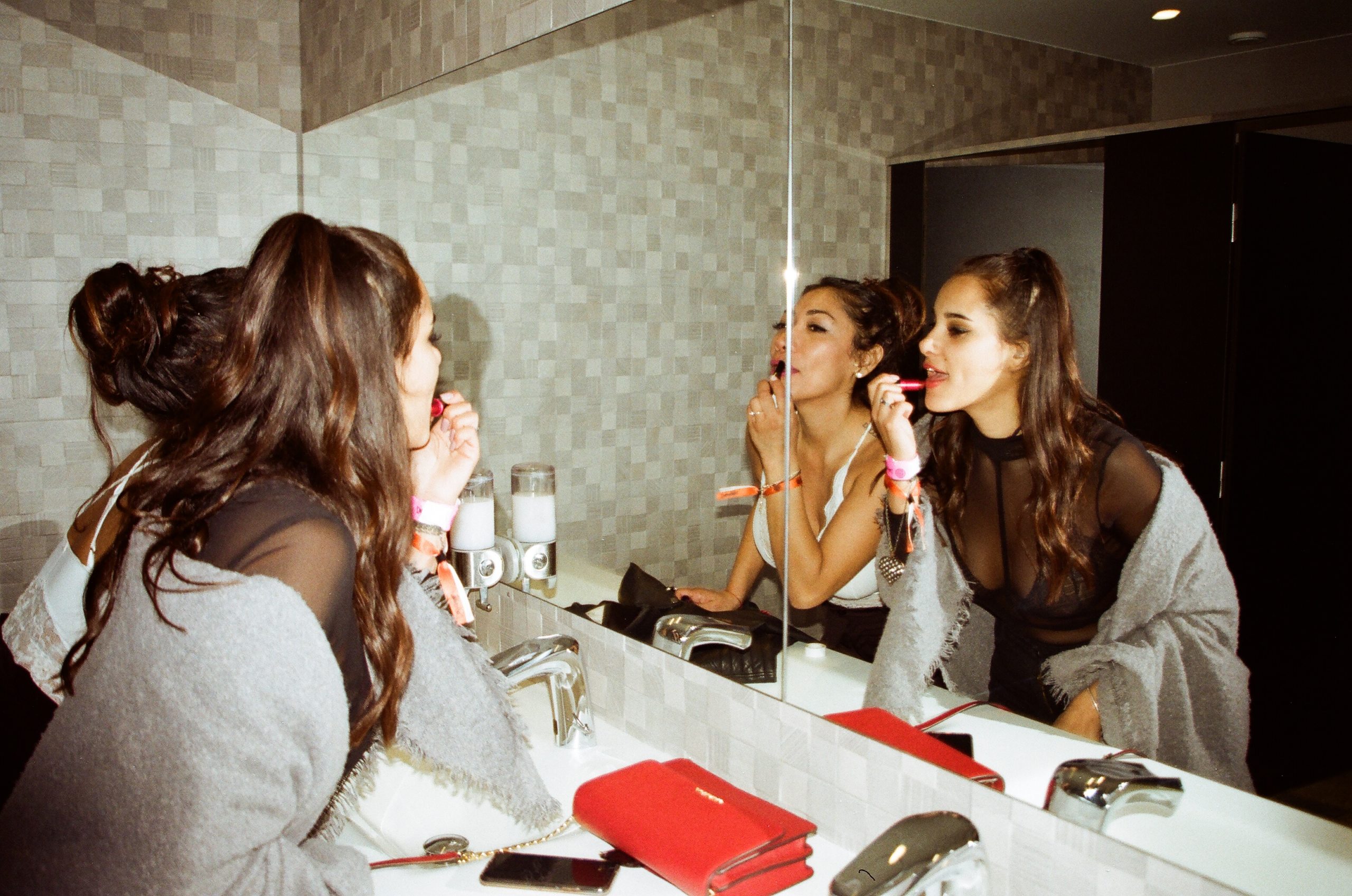
Whilst diving further into our conversation, I was impressed by the multitude of layers she looks at while “analysing” and choosing clubs as a motif for her artistic practice. The clubbing experience is vast, constituted by arrangements made between people before and after, a social experience in itself. The economic aspect also plays a role in her observations as the clubbing industry employs a huge number of staff. A cultural layer also surrounds clubs and their locations.
Indeed, Charlene Galea has been travelling to festivals in foreign countries, realizing that people tend to forget that there is a place outside of the club that can be visited, looked at, interacted with. Instead of consuming the event and flying back to their country the artist invites people to have a look around themselves, to be more aware of their physical presence in a new cultural area.
A section of the exhibition will be dedicated to her travel experiences, juxtaposing photos of parties and of villages she visited.
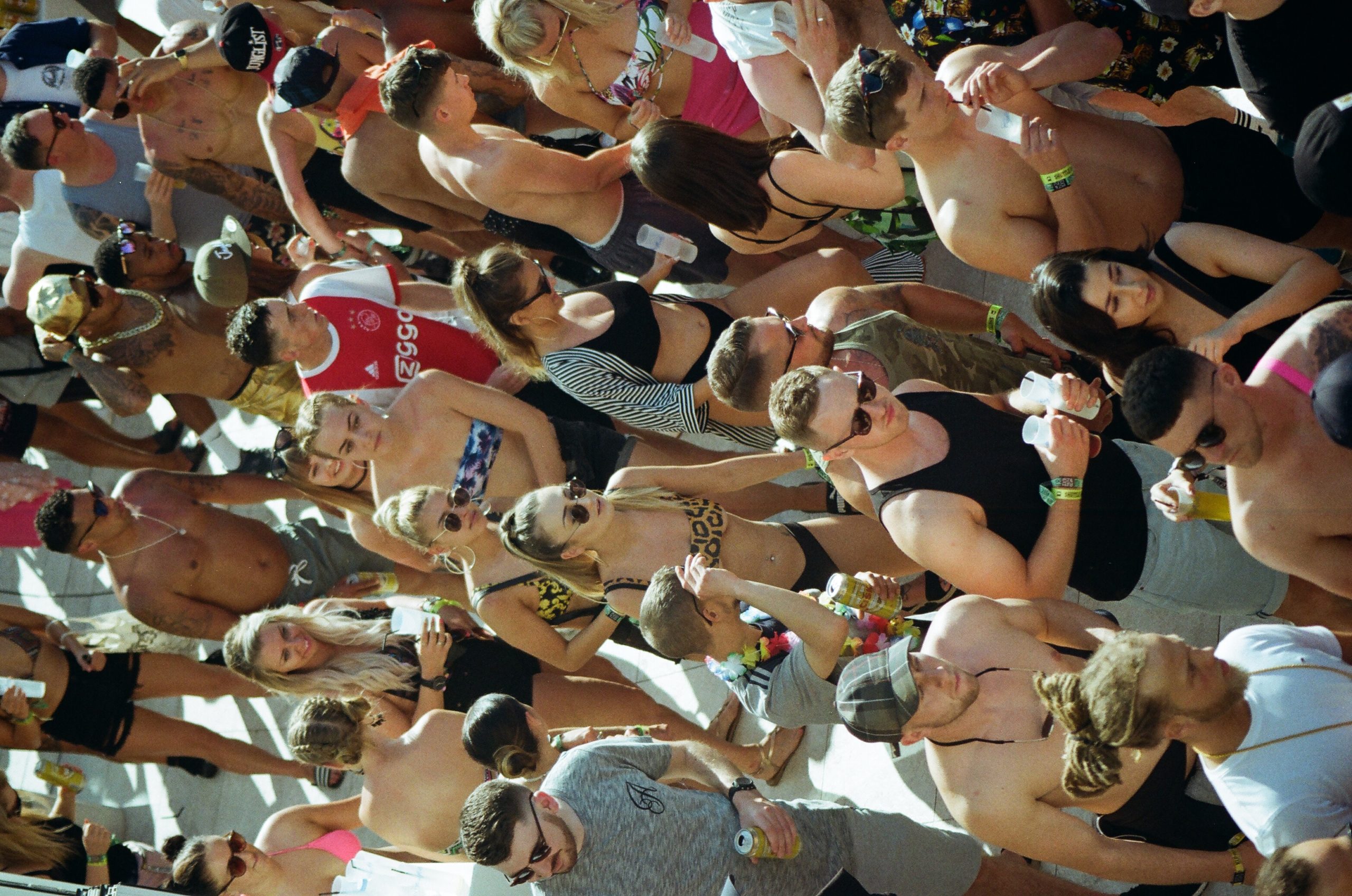
Regarding the way Charlene Galea dives into a topic and deepens concepts and practices under an anthropological and performative eye, it is not a surprise that the exhibition was curated by Margerita Pulè who manages the Unfinished Art Space. In comparison to the commercial art market in Malta, the Unfinished Art Space gives space to political art and concepts creating thoughts, in a more underground way. “It is the right moment to come out with those photos: in a safe space that is not taken for granted”.
The exhibition will be composed of 40 to 50 images organized in 8 different spaces. “Entering at their own risk”, people will have a first insight into the club experience. In a second room, a space will be reserved for pictures of outfits, statements, preparation for the club. The third room will be dedicated to travel experiences in Tunisia, Ibiza, Marseille, and Morocco where globalization has made clubs homogeneous in the inside, standing in stark contrast to the outside world of those cities and countries.
In the kitchen there will be kissing portraits, in the bathroom some shots of girls in club toilets, before walking to the outside area presenting photos of festivals as well as portraits of sleeping people. The 7th room will include intimate photos and the last room will show after party pictures which are, for the artist, always full of surprises.
A travel around times and spaces with colourful flashbacks…
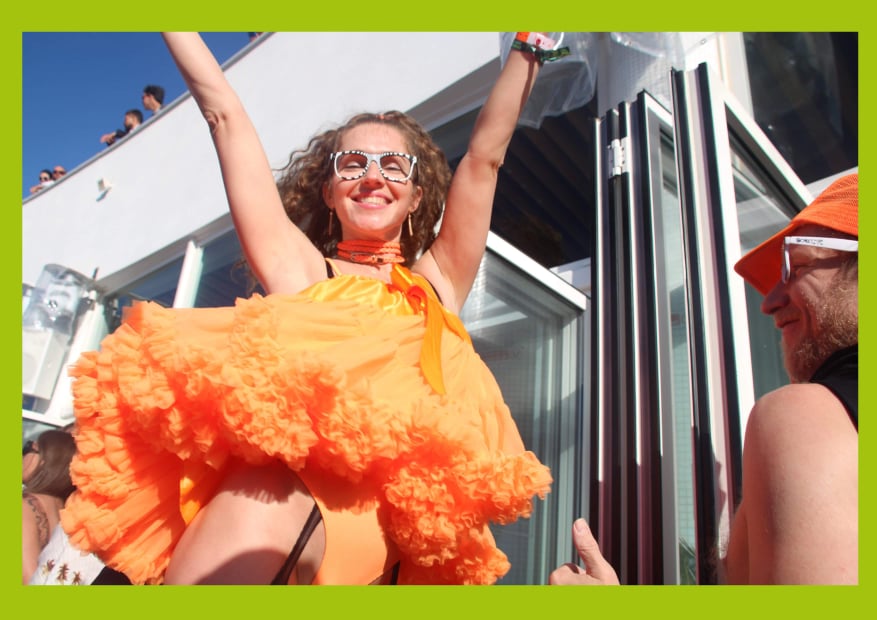
“Probably people will have to queue outside because of the corona rules, but at least it will be a metaphor for the queuing moment when going to a club”, says Charlene Galea as we start shifting our discussion towards her position as an artist in Malta. During COVID-19 times it is difficult to get support from the state as the government ranks artists on a marking scheme which creates a feeling of competition.
“Being an artist in Malta is not so easy”, she states explaining that numerous people criticize her performances and her way of presenting herself on Instagram. A part of the population is still shocked by the clubbing scene, open air parties and liberated bodies.
Women in Malta are also still attached to numerous beauty standards which Charlene Galea tries to overcome through her work, liberating movements when “modelling” herself on her photos. She wants to shoot women as they are, in a more organic way.
Through her Instagram account she already connected to a big network and considers stories as a good way to engage and communicate with her audience, but also to know it and produce art for groups that are interested. “Who is my audience?” is a constant question she asks herself in order to stay flexible and open – surely not a bad quality for artists who today, more than ever, have to adapt to survive and preserve their art in unequal societies.
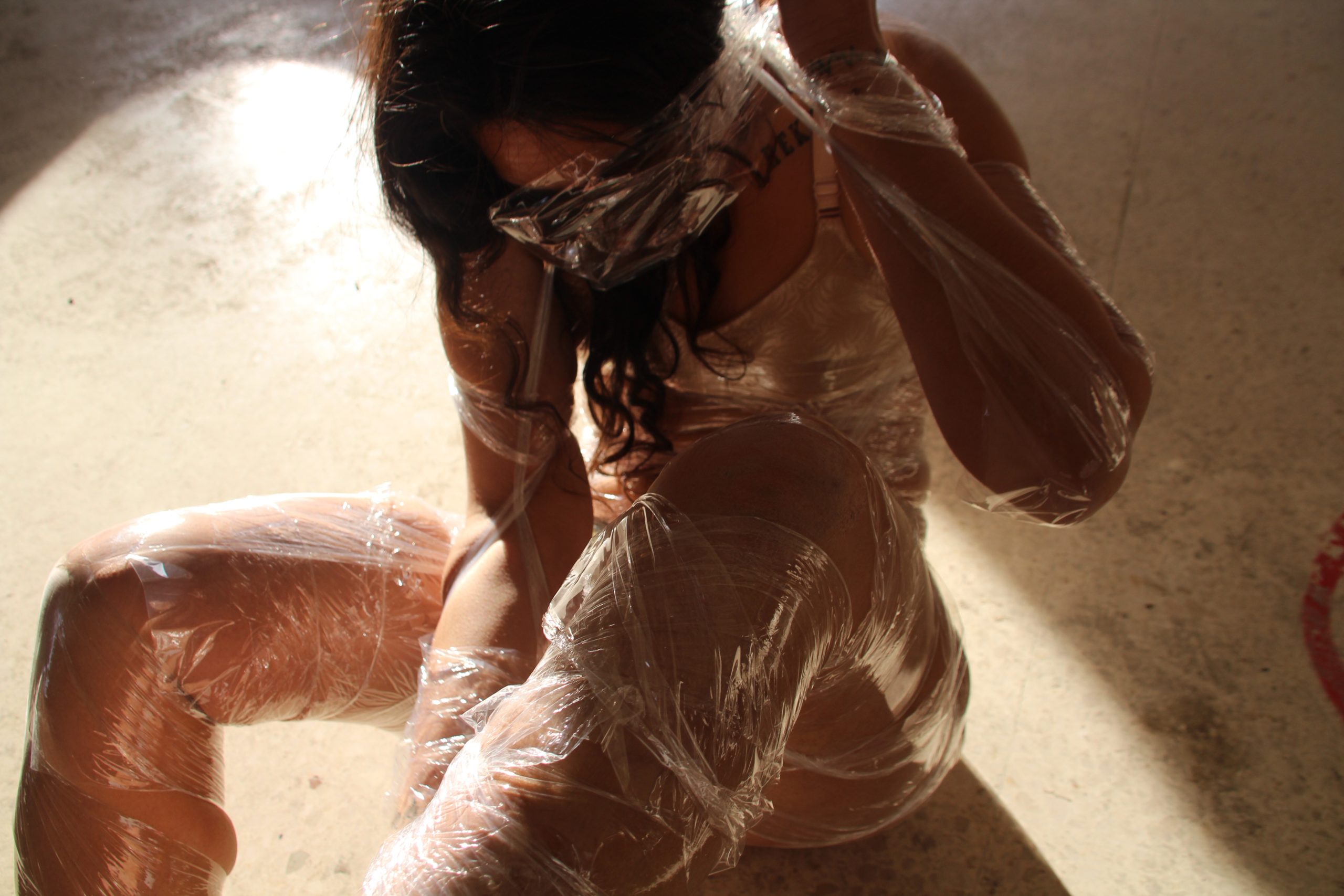
The exhibition “Us” Clubbing Report is part of The Wandering Tower, the 2020 edition of the Mahalla Festival taking place in Istanbul: http://mahalla.inenart.eu/2020/12/01/a-clubbing-report-in-a-world-without-clubs/
You can support Charlene Galea’s work for an artistic surprise in exchange by clicking here.
Image Snatchers
Our friend Luka is performing in Image Snatchers: Technoburlesque is a mute comedy of the body that mocks rigidity of social roles. It uncritically appropriates, copies and glues together femininity, masculinity, family relationships, machismo and other degenerated social roles that are unrighteous considered to be normative. When Image Snatchers totally expose themselves — and remove their social dresses layer by layer — they do not find the essence, but realize that the essence is nothingness, and the performed travesties opium that makes living bearable. This amusing play in cross-dressing and their behavior are a result of great sexual and bodily liberation from social bands. Satisfied in eclectic noise of media images they stretch popular snap-shots and bite them to their unheard-of forms that provoke burst of laughter or despair. Image Snatchers don’t seek for meaning but pleasure. As pleasure is the hedonistic polish with which they smeared everyday objects and made something exceptional out of them. Technoburlesque is an intersection of (program/cybernetic) code and subjectivity; a laying bare of the physical and emotional body indivisibly bound up with the information matrix of contemporaneity.
“I am riddled with ambivalence. I am both the rule and its exception, the law and its outcast, the doctor and the hysteric, I cannot be one without the other. I do not reject the images that consume me. I become them.” (Mady Schutzman)
You Are What You Buy
We took part in the YAWYB workshops. Excerpt from Times of Maltaabout YAWYB: An artistic research project held between 2016 and 2017 questioned the effects of consumption on buyers. This year, a second edition is delving deeper into the subject and is particularly looking at the impact of the COVID-19 pandemic on our production, shopping and consumption habits.
You Are What You Buy (YAWYB) reacts to current issues on consumption and consumerism, offering an alternative artistic experience. The first edition was a year-long transdisciplinary project that departed from a reflection on our need to affirm ourselves as consumers. The research process and final presentation were set in a supermarket in Malta, offering a different possibility of where and how to experience art − away from the art institution.
Since then, the team continued thinking on how they could develop the project further.
“In the wake of the pandemic, it felt like a natural progression to revisit the project − it almost felt like a responsibility not to ignore all the changes in our production, shopping and consumption habits resulting from the impact of the pandemic. This is how YAWYB ‒ A Remote ReVisit came about,” artist Kristina Borg says.
“Also, YAWYB has always anticipated to catalyse change in our production, shopping and consumption habits, specifically inviting us producers and consumers to engage in more intelligent thinking processes while we produce and shop, with the aim of contributing to a new normal that guarantees responsible production and consumption for sustainable cities and communities. And what better time, when we’re affected by the pandemic, to reflect on this?” she continues.
In answering the research question (see box on right) and more, YAWYB – A Remote ReVisit moves outside and beyond the supermarket space to incorporate other spaces and places of production and consumption in our neighbourhoods. These include, but are not limited to, the local grocery store or the mini-market, the open markets, the supermarket, the household store, the clothes store, the coffee place, the restaurant and online platforms.
This second edition focuses mainly on research; however, the outcomes are presented through artistic and creative means.
Similar to the first edition, this second edition also collaborates with a group of community co-creators as well as with service providers. This was done remotely due to the pandemic, hence the ‘remote’ in the title. In the wake of the pandemic, it felt like a natural progression to revisit the project
“With this in mind, it is important to mention that such remote means allowed the project to widen its audience to a European-based one, attracting survey respondents and community co-creators based in Austria, Belgium, France, Germany, Greece, Ireland, Italy, Latvia, The Netherlands, Spain, Switzerland, Turkey and the UK,” Borg enthuses.
“This has also provided a wider spectrum of shared experiences as affected by different degrees and levels of the pandemic in different countries.”
DIY Synth Building Workshop
Introducing: the ‘Storbju Noise Monger’ – a simple electronic noise generating device designed by Mike Desira and Frank Cachia.
Mike and Frank will be presenting a workshop on how to build the Storbju Noise Monger – a DIY synthesizer kit built around the Texas Intruments CD40106 chip. The chip consists of 6 Schmitt-trigger circuits and with it, our designers managed to invent a 6-oscillator noise device – with 3 high speed and 3 low speed oscillators.
This baby can be powered by a range of DC voltages of up to 9 volts. Its oscillators can be connected in a modular fashion; using small jump leads in a series of small connectors. A series of 7 potentiometers are used to control the main and individual oscillator frequencies and an optical detector can also be used to change the overall frequency.
The aim during the workshop will be to provide users with basic soldering skills as well as the knowledge of how to build this specific kit. So, participants will be required to bring with them their own Storbju Noise Monger kit.
Tracking, Networks and Data

With their exploration of logistics infrastructures, !Mediengruppe Bitnik provides insights into systems that usually work invisibly. From the investigation of algorithms that evaluate our social media profiles in their work Flagged for Political Speech to interference with the greatly automated mail system in Decisions Decisions Decisions the artistic duo observes the anatomy of these fully optimized automated systems that assist our daily lives and reveals their gaps and flaws.
Now it’s time for you to join the workshop with !Mediengruppe Bitnik and explore the hidden, unmapped networks of the world around you. Using five mini GPS trackers as tactical tools we will explore the service networks, waste management, transport networks of the city while the position data generated by the trackers will allow us to make visible movements as maps.
The two-day workshop in the form of a presentation and planning on the first day, and practical work on the second, will take place via Zoom. All participants will be able to follow the movement of devices on the map online for a continuous period of 5 to 10 days. Participants will work in teams of 3 and can either enroll as a group or individually. No special skills are required, however all partakers should have access to an end device and a good internet connection.
The Black Book of push-backs
A 1500-page ‘Black Book’ that documents the horrific violence suffered by over 12,000 people at the hands of authorities on the EU’s external borders has been released today – International Migrants Day – by The Left in the European Parliament. Compiled by BVMN and printed over two volumes, the ‘Black Book of Pushbacks’ is a collection of hundreds of testimonies of migrants and asylum seekers who have experienced human rights violations at external borders.
The New Normal
December 2020 the New Normal artistic research book has been co-published by Strelka Press and Park Books. The New Normal publication encompasses the breadth, diversity, and intensity of activity that has taken place throughout the three-year project. From 2017–2019, The New Normal think-tank at Strelka Institute investigated the impact of planetary-scale computation on the future of cities in Russia, and globally.
The work was conducted by ninety interdisciplinary researchers from thirty different countries and over forty faculty members, drawn not only from the field of architecture but also from the areas of computer science, philosophy, art, cinema, economics, and more. Projects ranged from short-form cinema and software design to proposals for new political systems and economic models. At stake for the work is not only what the urban future looks like, but also how it works; how it circulates ideas, value, and power. The twenty-two interlinked projects which were developed show how speculative urban design can move upstream in the decision-making processes.
Coined by Carl Schmitt and expanded by Giorgio Agamben, a “state of exception”—the exhibition’s Chinese title—refers to a political situation in which the normal laws and regulations of a society are abruptly suspended, replaced by temporary conditions that in turn become a new status quo. States of exception have been imposed at moments of crisis throughout modern history. Crisis today is constant, as ideals of freedom, equality, and openness, once held by some as universal values, give way to mass shootings, aborted ceasefires, violated norms, and tainted elections. In 2015, the Chinese leadership introduced “the new normal,” a way of talking about economic growth rates that, while lower than during the exuberant years of the early 2000s, continue to trump those of most other major economies. China’s assertively capitalist, internationalist response to these increasingly acute dynamics—recently typified by President Xi Jinping’s address to the World Economic Forum in Davos—might also be considered a “state of exception,” one that runs parallel to the new patterns of globalization that inform artistic cosmopolitanism today.
